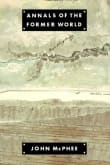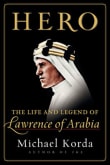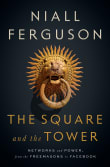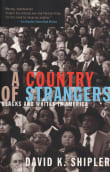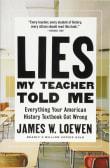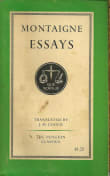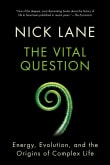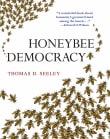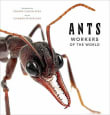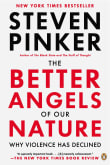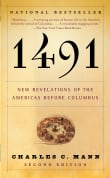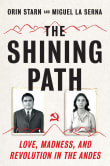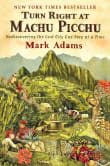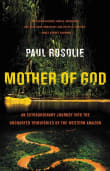Guns, Germs, and Steel
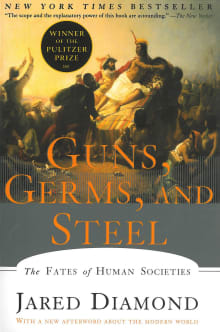
Book description
Why did Eurasians conquer, displace, or decimate Native Americans, Australians, and Africans, instead of the reverse? In this "artful, informative, and delightful" (William H. McNeill, New York Review of Books) book, a classic of our time, evolutionary biologist Jared Diamond dismantles racist theories of human history by revealing the environmental…
Why read it?
17 authors picked Guns, Germs, and Steel as one of their favorite books. Why do they recommend it?

This book was written by a biologist with a profound knowledge of the natural world, including our species. It is one of the best books written by a scientist. It combines biology, anthropology, and history to explain a lot about where we came from and why some countries are wealthier than others, rooting such discussions on biology.
From Rui's list on understand human nature and sexuality.

This book came out just as I was starting grad school and caused quite a bit of academic consternation. Diamond, a Harvard anthropologist, steps way outside the normal academic lanes to link geography, biology, technology, and history to answer one of the big academic questions: why was Europe able to conquer Africa and South Africa in the 16th-19th centuries? Even asking the question is to face challenges to morality, politics, and identity issues that are still radioactively hot topics in the modern political and academic world.
His mechanistic explanation of the advantages of climate and geography enraged many academics who…
From Brian's list on former English majors who like science.

I’ve always thought that the history of humans should be no different from the history of any other living organisms–what in biology is called “natural history."
Humans are a species of animals, and all physical, chemical, and biological rules apply to them. So I was delighted to finally see a history book that follows the history of humans by applying exactly this scientific approach and thus explaining, in deterministic scientific terms, our own history.
From Eran's list on how plants have had a dramatic influence on human history.
If you love Guns, Germs, and Steel...

This is the now classic work on why “advanced” civilization developed in some places and not others in human history. It remains a controversial issue.
A psychologist, ecologist, and geographer with a background in field study in New Guinea, Diamond makes a strong argument that there are environmental reasons for these differences. Ranging across all the continents and thousands of years of human history, I found it hard to put down and even harder to understand how Diamond can work in so many fields at once!
Some do not like this daring book. But nobody has surpassed it yet.
From Larry's list on history and science books that tell us who we are now.

This book brings together world history, anthropology, and storytelling into a compelling dialogue that explores a rich tapestry of human ingenuity, folly, and determination.
Diamond’s way of telling and presenting the history of mankind drew me into historical details and social concepts in such a way that I not only wanted to know more but absorbed the material freely, which is difficult considering how dense the material can be. I found the general plot line and thrust were kept clear and simple while navigating complex questions, resulting in a rewarding read!

I really like this idea: there was no essential inferiority in those who lost, no particular virtue in those who won.
I love this story of how human cultures have interacted with ecosystems and diversified. A set of contributing factors regulates the fate of civilizations, whose roots are intertwined with each other and with the rest of biodiversity.
From Telmo's list on the fact that evolution didn't predict us.
If you love Jared Diamond...

Why are some regions of the world so much richer and more technologically advanced than others?
Reading this brilliant book by Jared Diamond opened my eyes to the fact that development processes are rooted in geography, and small differences in initial conditions can generate massive differences in the level of development due to self-reinforcing feedback loops.
For example, availability of wild wheat species in the Middle East and wild rice in China encouraged the adoption of farming there ahead of other parts of the world – and centuries later these regions became the most populous and technologically advanced.
A top…
From Jakub's list on the past and future of our civilization.

Twenty years after first reading this groundbreaking book, I revisited it with a deeper understanding of the historical framework around which its assertions are built.
Diamond's arguments, this time around, struck me as less abstract and theoretical and more concrete and convincing – mostly because I had a better grasp of the ancient civilizations he references. The main thesis – that societies with better food production thanks to geography enjoyed a head-start on other locales – seems incontrovertible upon further consideration.
It's a groundbreaking, dazzling book.

My interest in colonization and imperialism peaked by Becoming Roman and other such books and I wanted to know how these processes had worked out in the imperial experiences that shaped our modern world. So I picked up Guns, Germ, and Steel.
Through this Pulitzer Prize-winning book, Diamond set out to discover the factors that allowed European powers to conquer most of the world from 1492 and on. Relatively speaking, they were backwater kingdoms, still clinging to inefficient feudal economies. So, how did they do it? For Diamond, it boiled down to three variables: guns, germs, and steel.
Though it…
From Jordan's list on that will hook you on history.
If you love Guns, Germs, and Steel...

Jared Diamond is a biologist by training. But his landmark book describes why, historically, invention thrived in Europe and Asia, and not Africa and the Americas.
Invention led to the colonization of the latter continents, and incredible oppression of the people living there. The book offers a glimpse into the causes of war and violence throughout the world, demonstrating how creativity and diversity are the greatest gifts to peace.
Modern peacebuilding relies on embracing diversity, new ideas, and open trade. Diamond showcases why this approach works and the pitfalls of oppression as an alternative.
From J.'s list on understanding the roots of war and peace.
Want books like Guns, Germs, and Steel?
Our community of 12,000+ authors has personally recommended 100 books like Guns, Germs, and Steel.






